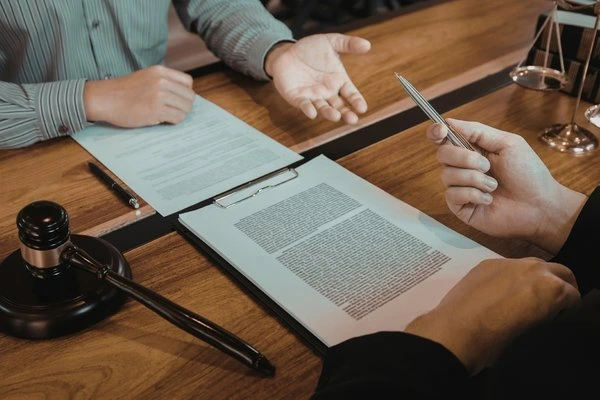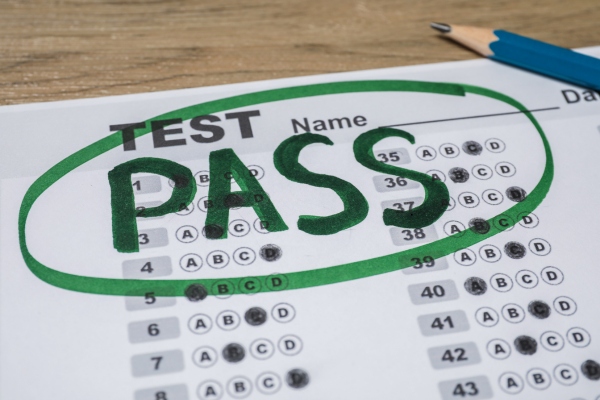The Importance Of Reunification Therapy
Reunification therapy provides structured counseling to repair damaged parent-child relationships after separation or estrangement. This specialized therapeutic approach addresses the emotional wounds caused by divorce, parental alienation, or family conflict. It rebuilds trust, restores communication, and heals broken bonds between parents and children. However, choosing the right therapist is critical for success. A trained and experienced reunification therapist guides families through healing effectively. An unqualified counselor can worsen conflict and increase emotional distress for everyone involved.
Understanding how reunification therapy works helps families make informed decisions about their healing journey. This article explores the benefits of professional reunification counseling for separated families. You’ll discover who needs this therapy and how it repairs parent-child bonds. We examine the serious risks of working with untrained therapists. You’ll also learn about the mental health consequences of unresolved family estrangement. Finally, we provide guidance on finding qualified professionals to lead successful reunification.
Key Takeaways
- Reunification therapy rebuilds trust and communication in estranged parent-child relationships
- Trained therapists address root causes like parental alienation and unresolved trauma
- Unqualified counselors can worsen family conflict and emotional distress
- Untreated estrangement can lead to lasting anxiety, depression, and trust issues
- Professional intervention may help reduce long-term psychological harm to families

Who Should Consider Reunification Therapy?
Reunification therapy supports families facing particular relationship difficulties. Strained parent-child bonds after divorce or separation represent typical cases. Some children are persuaded to distance themselves from one parent unfairly. Long absences in contact result from legal battles or family disruptions. Custody disputes with high tension frequently harm parent-child connections. Past misunderstandings or lingering conflicts create deep emotional scars in families. These problems need expert support to properly resolve.
When a child withdraws from, resents, or declines interaction with a parent, solutions exist. This pushback usually comes from outside pressure or persistent disagreements. Reunification counseling can restore the bond using an organized method. The approach focuses on what the child emotionally requires. Expert facilitation builds a protected environment for repairing family relationships.
How Reunification Therapy Repairs Parent-Child Bonds
Reunification counseling helps parents and children reconnect by addressing estrangement causes. It tackles alienation and emotional wounds that damage family relationships. A trained reunification therapist offers essential support through multiple strategies. These approaches work together to heal and strengthen family connections.
Rebuilding Communication and Trust
Estranged parents and children often find effective communication extremely difficult. Feelings of anger, betrayal, or sadness prevent meaningful engagement between them. A licensed reunification counselor establishes a safe, neutral environment for families. Both parents and children can rebuild trust in this protected setting. They express emotions freely without fearing judgment or negative consequences.
Addressing Root Problems
Reunification therapy reveals the true reasons behind parent-child estrangement effectively. Common issues include parental alienation that influences children against a parent. Unresolved trauma from past events creates lasting emotional barriers. Previous misunderstandings between family members cause ongoing resentment and distance. Conflict between parents directly affects the child’s emotional wellbeing and relationships. A trained therapist helps families recognize these underlying issues clearly. They process difficult emotions together and move forward with understanding. Mutual respect develops as families work through their challenges systematically.
Facilitating Emotional Recovery
Estrangement often triggers anxiety, depression, and diminished self-worth in families. Both children and parents suffer from these psychological effects significantly. A reunification therapist leads families through proven emotional healing techniques. They help process grief, anger, and loss in constructive ways. The primary goal focuses on healing parent-child relationships for lasting change. Both parents and children feel supported, validated, and prepared to rebuild. Trust grows as emotional wounds begin to heal properly through specialized therapy services.
Developing a Structured Reunification Strategy
Healing family relationships requires time and careful planning to succeed. A skilled reunification therapist designs a customized plan for each family. The plan may include written communication before any in-person meetings occur. Guided parent-child interactions happen in a controlled, safe space initially. Contact gradually increases based on the child’s comfort and readiness levels. Conflict resolution strategies prevent setbacks during the reunification journey. Breaking the process into manageable steps makes progress feel more achievable. Parents and children rebuild their relationship at a pace that works.

The Risks of Selecting an Untrained Reunification Therapist
While reunification therapy effectively heals parent-child relationships, poor therapist selection causes problems. Working with an untrained or inexperienced counselor often does more damage. The wrong professional can worsen family conflicts instead of resolving them. Choosing qualified expertise matters significantly for successful outcomes.
Reinforcing Harmful Behaviors.
If the therapist cannot identify manipulation, parental alienation, or power imbalances, problems arise. They may accidentally enable toxic behaviors that damage the family further. These negative patterns continue unchecked without proper professional recognition and intervention.
Increasing Family Tension.
An inexperienced therapist lacking conflict-resolution skills may intensify existing tensions. Without proper training, they can make difficult situations significantly worse. The child may withdraw further from the parent as conflict escalates. Progress stops when professional guidance fails to manage emotions appropriately.
Missing a Structured Approach.
A weak or disorganized reunification plan frustrates both parents and children involved. Without clear direction, families feel lost and discouraged throughout the process. Progress stalls when there is no coherent roadmap to follow. Both parties need structured guidance to move forward successfully.
Overlooking Emotional Issues.
Without expertise in child psychology and family trauma, critical problems go unnoticed. An untrained counselor may miss underlying emotional wounds affecting reunification efforts. These deep issues require specialized knowledge to identify and address properly. Healing cannot happen when root causes remain hidden or ignored.

The Mental Health Consequences of Family Separation
Unaddressed separation creates severe harmful outcomes for both children and parents involved. These emotional injuries worsen progressively without appropriate intervention and professional care. Expert assistance becomes critical to avoid permanent psychological harm to families.
Impact on Children:
- Children experience elevated chances of anxiety, depression, and challenges in social interactions.
- They frequently battle with trust issues and build secure bonds in later relationships.
- Mental distress arises when children feel trapped between their parents’ disagreements.
- Shame often weighs on children who believe they caused the family split.
- These mental health issues can persist into their adult years without treatment.
Impact on Parents:
- Parents endure intense emotional suffering, remorse, and sensations of total powerlessness.
- Their connections with other relatives and close friends become tense and challenging.
- Money troubles and legal pressure increase from continuous custody battles and legal actions.
- The weight of separation impacts their psychological wellness and everyday life activities.
- Many parents experience loneliness and lack of support throughout this difficult period.
Pursuing professional reunification counseling can substantially decrease these damaging consequences. Families can recover and restore their connections through appropriate therapeutic support. Timely intervention stops extended psychological damage for all parties affected by separation.
Conclusion
Reunification therapy offers hope for families struggling with parent-child estrangement after separation or conflict. This specialized counseling approach rebuilds trust, restores communication, and heals emotional wounds between parents and children. However, success depends entirely on choosing a qualified, experienced reunification therapist. An untrained counselor can worsen family tensions and cause additional psychological harm. Take time to research potential therapists, verify their credentials, and ensure they specialize in high-conflict family reunification cases.
Don’t let unresolved estrangement damage your family’s mental health and future relationships permanently. Professional reunification counseling provides the structured support families need to heal and reconnect. Whether dealing with parental alienation, custody disputes, or long-term separation, expert guidance makes recovery possible. Start your healing journey today by finding a trained reunification therapist who understands your family’s unique challenges. The sooner you seek help, the better your chances of rebuilding strong, healthy parent-child bonds. Contact us today to learn how we can support your family’s reunification journey.
Disclaimer: This article is intended for general informational purposes and describes reunification therapy broadly. Reunification services at FC PsychExperts are provided based on clinical appropriateness, referral context, and, when applicable, court involvement. This content is not a substitute for individualized professional or legal advice.
FAQs
How long does reunification therapy typically take to show results?
The timeline varies based on the severity of estrangement and family cooperation. Most families see initial progress within three to six months of consistent therapy.
Can reunification therapy work if my child refuses to participate initially?
Yes, skilled therapists specialize in working with resistant children through gradual engagement techniques. Many initially reluctant children become willing participants as they feel safer and understood.
What qualifications should I look for in a reunification therapist?
Seek licensed therapists with specific training in family systems, child psychology, and reunification therapy. They should have experience handling high-conflict custody cases and parental alienation situations successfully.
Is online reunification therapy as effective as in-person sessions?
Virtual reunification therapy can be equally effective when conducted by experienced, qualified professionals. Online sessions eliminate geographical barriers and provide flexible scheduling for busy families.
What happens if one parent actively sabotages the reunification therapy process?
A skilled reunification therapist will document sabotage behaviors and address them directly in sessions. Courts may consider sabotage behaviors when evaluating custody matters to support successful reunification.































